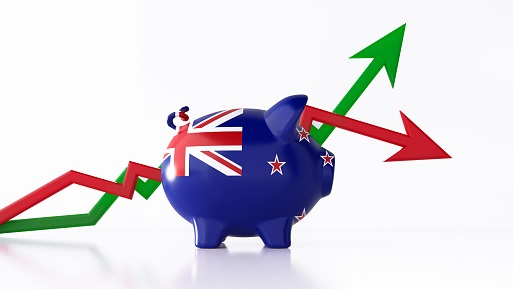It was a very light session for data on Tuesday, with Asian equity markets posting reasonable gains in the absence of macroeconomic news. Japan’s Nikkei 225 gained +0.3%, while China’s Shanghai Composite eked a +0.1% increase.
The biggest gains were seen elsewhere, with Hong Kong’s Hang Seng rising by +1.1% and South Korea’s KOSPI +1.3%. Australia’s S&P/ASX 200 ramped up +1%, plus it was a solid day for the AUDUSD pair.
On the data front the focus for the session was Australian June business confidence and conditions. Confidence improved a little while conditions remained stable as Australia’s NAB business confidence index increased to 0 in June 2023 from a downwardly revised -3 in the prior month, beating market forecasts of -1.
Meanwhile, business conditions steadied at above-average levels (at 9), as the survey’s measure of sales fell a point to a still-strong 14, while the employment index stayed at 5 and profits rose two points to 9.
Forward orders, a leading indicator of demand, rose three points to -2. In a sign of easing supply chain pressures, the survey’s measure of capacity utilization fell to its lowest since early last year at 83.5%. Labour costs jumped to 2.6% in quarterly terms, possibly reflecting firms factoring in minimum and award wage increases, while input cost growth remained at 2.3%.
NAB chief economist Alan Oste noted that “We continue to see warning signs in the survey about the outlook for growth but as of June firms were yet to see a real deterioration.”
The British pound traded on the edge of 1.2900 as the US dollar continued to slide. Data from British Retail Consortium data for June 2023 showed like-for-like sales +4.2% y/y (prior +3.7%), and total retail sales +4.9% y/y (prior +3.9%).
The BRC said that unusually hot weather boosted sales of swimwear, beach towels and outdoor games as well as garden furniture and barbecue food in Britain last month, and KPMG, who sponsor the data, said stubborn food inflation was reducing shoppers’ ability to spend on non-essential items.




